What is Myhugewords.com?
Myhugewords.com website is a scam that tricks computer users into allowing push notifications. Push notifications are originally designed to alert users of recently published news. Cybercriminals abuse ‘browser notification feature’ to avoid antivirus software and ad-blocking apps by displaying unwanted ads. These advertisements are displayed in the lower right corner of the screen urges users to play online games, visit suspicious web-sites, install internet browser plugins & so on.
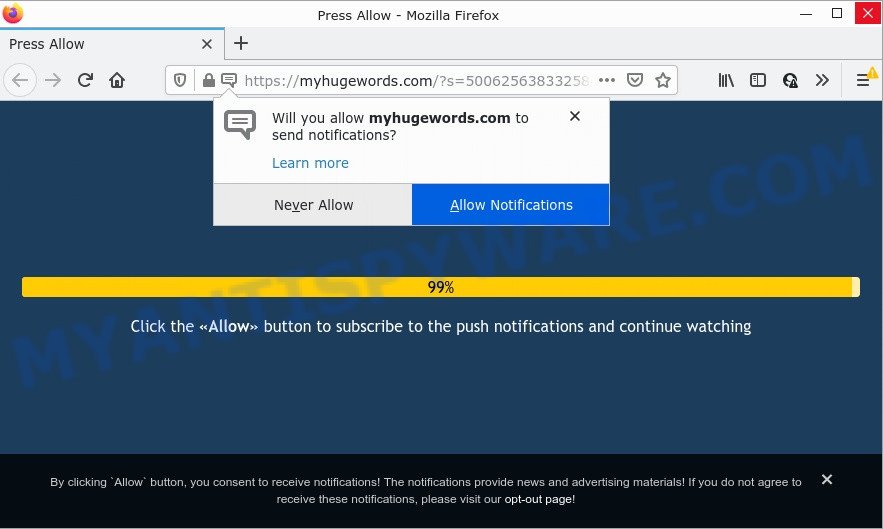
Myhugewords.com is a misleading site that displays a confirmation request states that clicking ‘Allow’ will let you watch a video, download a file, connect to the Internet, enable Flash Player, access the content of the web page, and so on. Once enabled, the Myhugewords.com notifications will start popping up in the lower right corner of your screen randomly and spam you with unwanted advertisements.
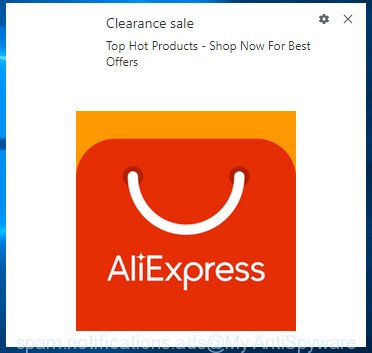
Threat Summary
| Name | Myhugewords.com pop-up |
| Type | spam push notifications, browser notification spam, pop-up virus |
| Distribution | PUPs, social engineering attack, adware, shady pop-up advertisements |
| Symptoms |
|
| Removal | Myhugewords.com removal guide |
Where the Myhugewords.com pop-ups comes from
These Myhugewords.com pop-ups are caused by suspicious advertisements on the web sites you visit or adware. Adware can cause many issues such as annoying ads and popups on your internet browser, irrelevant search results which redirect to scam websites, web-browser crashes and slow loading pages. Adware often installs on the personal computer with the free software.
Adware software usually spreads bundled with free applications which downloaded from the Internet. Which means that you need to be proactive and carefully read the Terms of use and the License agreement properly. For the most part, adware and potentially unwanted software will be clearly described, so take the time to carefully read all the information about the software that you downloaded and want to install on your PC system.
Remove Myhugewords.com notifications from internet browsers
Your web browser likely now allows the Myhugewords.com web site to send you notifications, but you do not want the annoying advertisements from this webpage and we understand that. We’ve put together this guidance on how you can remove Myhugewords.com pop ups from Firefox, Android, IE, Safari, Chrome and Microsoft Edge.
Google Chrome:
- Just copy and paste the following text into the address bar of Chrome.
- chrome://settings/content/notifications
- Press Enter.
- Remove the Myhugewords.com site and other rogue notifications by clicking three vertical dots button next to each and selecting ‘Remove’.
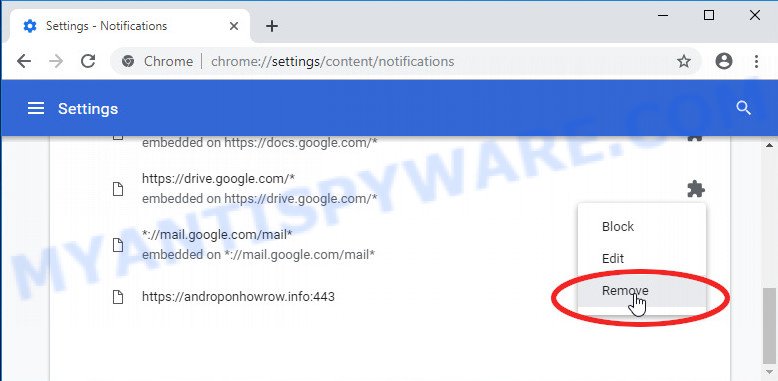
Android:
- Tap ‘Settings’.
- Tap ‘Notifications’.
- Find and tap the internet browser which shows Myhugewords.com push notifications ads.
- Find Myhugewords.com URL in the list and disable it.
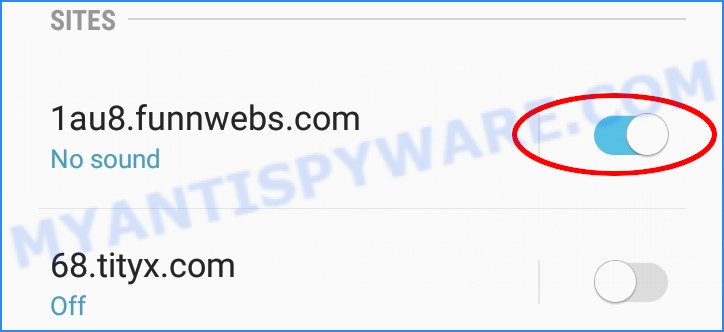
Mozilla Firefox:
- Click the Menu button (three bars) on the top-right corner.
- In the menu go to ‘Options’, in the menu on the left go to ‘Privacy & Security’.
- Scroll down to the ‘Permissions’ section and click the ‘Settings’ button next to ‘Notifications’.
- Locate Myhugewords.com URL, other suspicious sites, click the drop-down menu and select ‘Block’.
- Save changes.
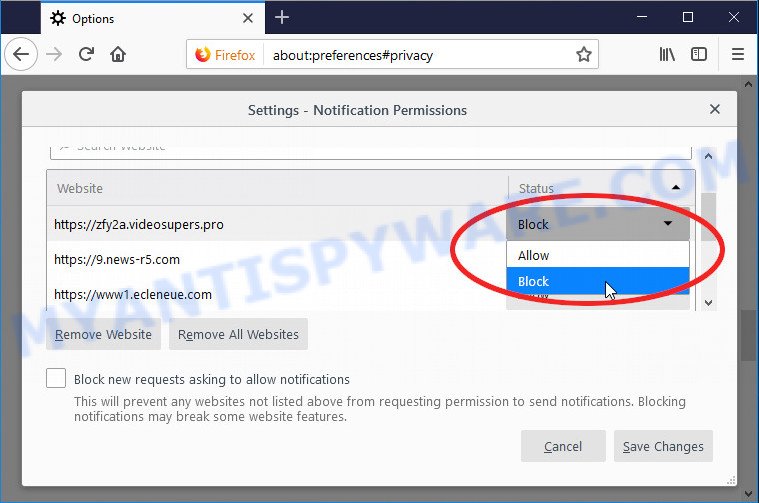
Edge:
- Click the More button (three dots) in the top right corner of the Edge.
- Click ‘Settings’. Click ‘Advanced’ on the left side of the window.
- In the ‘Website permissions’ section click ‘Manage permissions’.
- Click the switch under the Myhugewords.com site and each suspicious site.
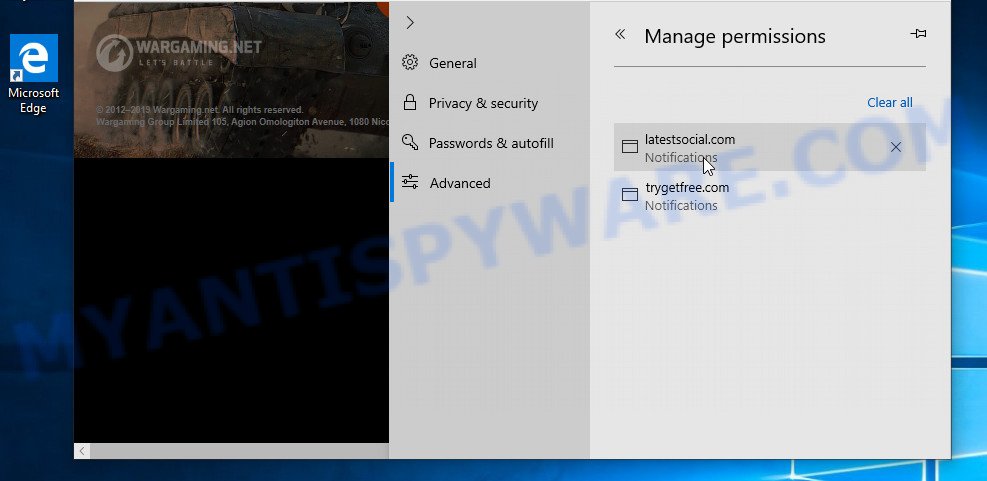
Internet Explorer:
- Click the Gear button on the right upper corner of the screen.
- Go to ‘Internet Options’ in the menu.
- Select the ‘Privacy’ tab and click ‘Settings below ‘Pop-up Blocker’ section.
- Select the Myhugewords.com URL and other suspicious URLs under and remove them one by one by clicking the ‘Remove’ button.
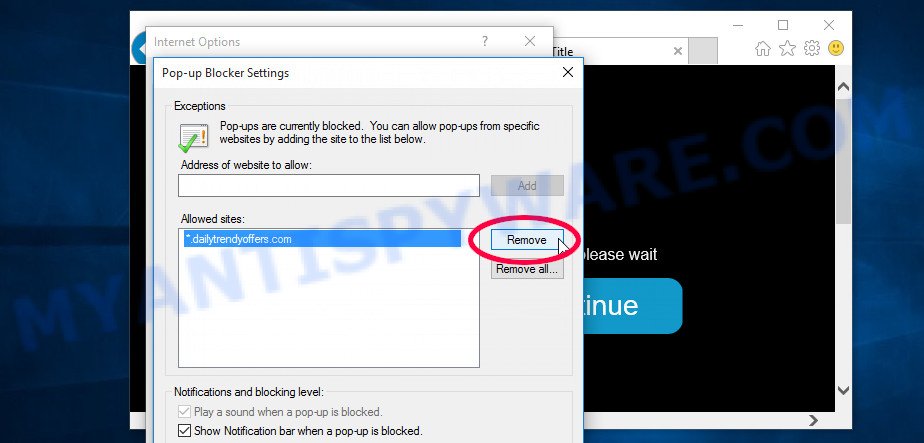
Safari:
- On the top menu select ‘Safari’, then ‘Preferences’.
- Open ‘Websites’ tab, then in the left menu click on ‘Notifications’.
- Check for Myhugewords.com site, other dubious sites and apply the ‘Deny’ option for each.
How to remove Myhugewords.com popups from Chrome, Firefox, IE, Edge
In order to delete Myhugewords.com pop-up ads, start by closing any programs and pop ups that are open. If a pop up won’t close, then close your internet browser (Chrome, MS Edge, Internet Explorer and Mozilla Firefox). If a application won’t close then please restart your device. Next, follow the steps below.
To remove Myhugewords.com pop ups, perform the steps below:
- Remove Myhugewords.com notifications from internet browsers
- How to manually remove Myhugewords.com
- Automatic Removal of Myhugewords.com popups
- Stop Myhugewords.com ads
How to manually remove Myhugewords.com
In most cases, it’s possible to manually get rid of Myhugewords.com popup advertisements. This method does not involve the use of any tricks or removal utilities. You just need to recover the normal settings of the device and web browser. This can be done by following a few simple steps below. If you want to quickly remove Myhugewords.com pop ups, as well as perform a full scan of your personal computer, we recommend that you use adware software removal utilities, which are listed below.
Remove unwanted or recently added software
We suggest that you start the personal computer cleaning procedure by checking the list of installed applications and uninstall all unknown or suspicious software. This is a very important step, as mentioned above, very often the malicious applications such as adware and hijackers may be bundled with freeware. Remove the unwanted applications can remove the annoying ads or browser redirect.
Windows 8, 8.1, 10
First, press Windows button

When the ‘Control Panel’ opens, click the ‘Uninstall a program’ link under Programs category as shown in the following example.
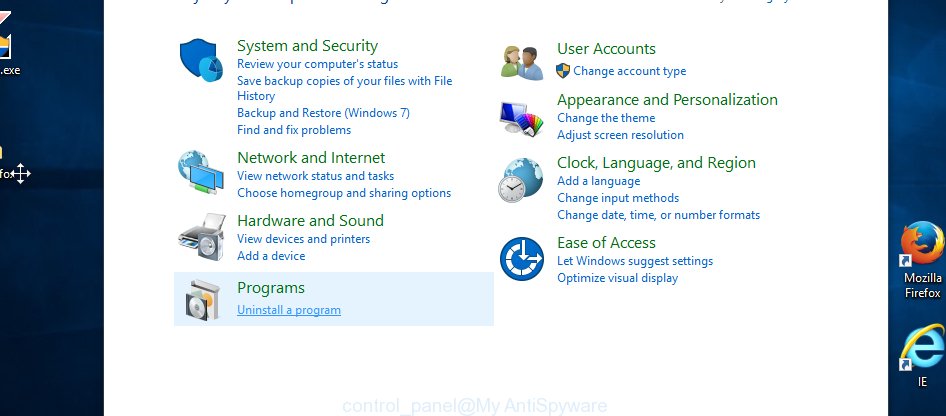
You will see the ‘Uninstall a program’ panel as on the image below.

Very carefully look around the entire list of programs installed on your PC system. Most likely, one of them is the adware that causes Myhugewords.com advertisements. If you have many software installed, you can help simplify the search of harmful programs by sort the list by date of installation. Once you have found a dubious, unwanted or unused application, right click to it, after that press ‘Uninstall’.
Windows XP, Vista, 7
First, click ‘Start’ button and select ‘Control Panel’ at right panel as shown below.
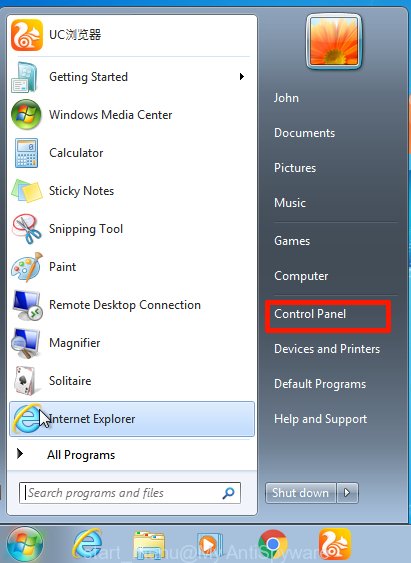
Once the Windows ‘Control Panel’ opens, you need to press ‘Uninstall a program’ under ‘Programs’ like below.
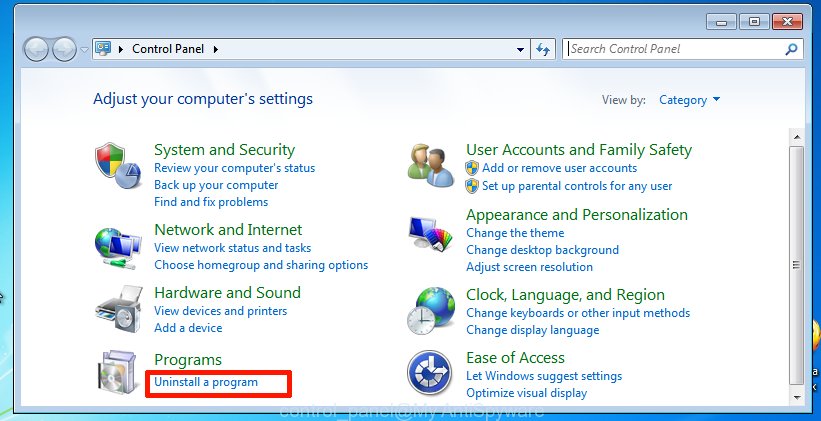
You will see a list of applications installed on your personal computer. We recommend to sort the list by date of installation to quickly find the programs that were installed last. Most probably, it is the adware software that causes multiple unwanted pop ups. If you are in doubt, you can always check the program by doing a search for her name in Google, Yahoo or Bing. After the program which you need to remove is found, simply click on its name, and then click ‘Uninstall’ as shown in the figure below.
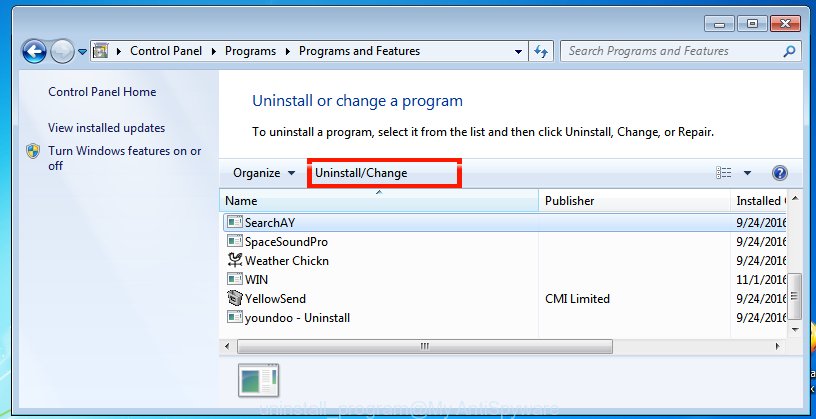
Remove Myhugewords.com pop ups from IE
If you find that Microsoft Internet Explorer internet browser settings like default search engine, newtab and start page had been replaced by adware software which causes the annoying Myhugewords.com pop-up ads, then you may return your settings, via the reset internet browser procedure.
First, run the Microsoft Internet Explorer. Next, click the button in the form of gear (![]() ). It will display the Tools drop-down menu, click the “Internet Options” such as the one below.
). It will display the Tools drop-down menu, click the “Internet Options” such as the one below.

In the “Internet Options” window click on the Advanced tab, then click the Reset button. The Microsoft Internet Explorer will display the “Reset Internet Explorer settings” window as on the image below. Select the “Delete personal settings” check box, then click “Reset” button.

You will now need to reboot your PC system for the changes to take effect.
Remove Myhugewords.com pop up advertisements from Mozilla Firefox
The Firefox reset will remove redirects to unwanted Myhugewords.com web site, modified preferences, extensions and security settings. However, your saved bookmarks and passwords will not be lost. This will not affect your history, passwords, bookmarks, and other saved data.
Click the Menu button (looks like three horizontal lines), and click the blue Help icon located at the bottom of the drop down menu as shown in the following example.
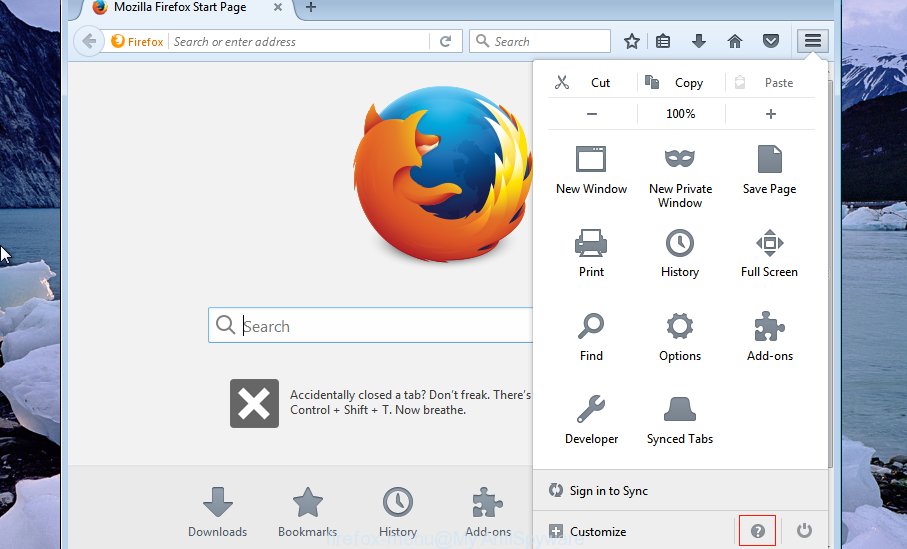
A small menu will appear, click the “Troubleshooting Information”. On this page, press “Refresh Firefox” button as shown on the image below.

Follow the onscreen procedure to return your Mozilla Firefox web browser settings to their default values.
Remove Myhugewords.com pop ups from Chrome
Reset Chrome settings to get rid of Myhugewords.com advertisements. If you are still experiencing issues with Myhugewords.com pop-ups removal, you need to reset Chrome browser to its original state. This step needs to be performed only if adware has not been removed by the previous steps.
First launch the Google Chrome. Next, press the button in the form of three horizontal dots (![]() ).
).
It will show the Chrome menu. Choose More Tools, then click Extensions. Carefully browse through the list of installed extensions. If the list has the extension signed with “Installed by enterprise policy” or “Installed by your administrator”, then complete the following instructions: Remove Chrome extensions installed by enterprise policy.
Open the Chrome menu once again. Further, press the option called “Settings”.
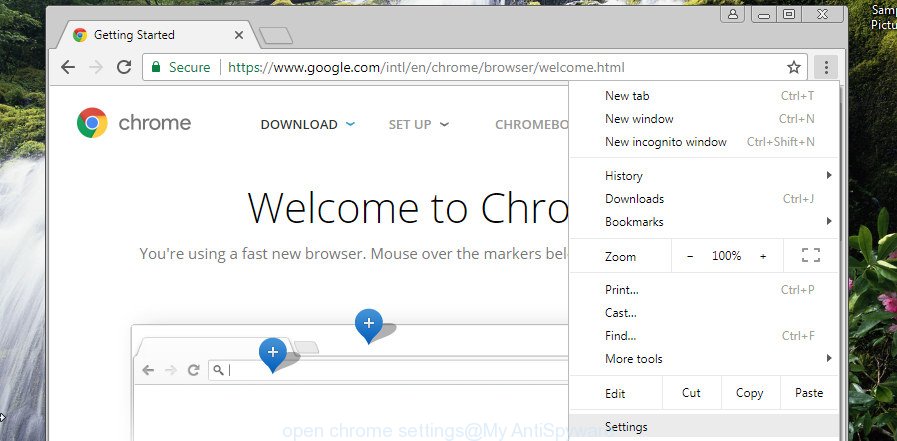
The browser will display the settings screen. Another method to show the Google Chrome’s settings – type chrome://settings in the web browser adress bar and press Enter
Scroll down to the bottom of the page and press the “Advanced” link. Now scroll down until the “Reset” section is visible, as on the image below and press the “Reset settings to their original defaults” button.
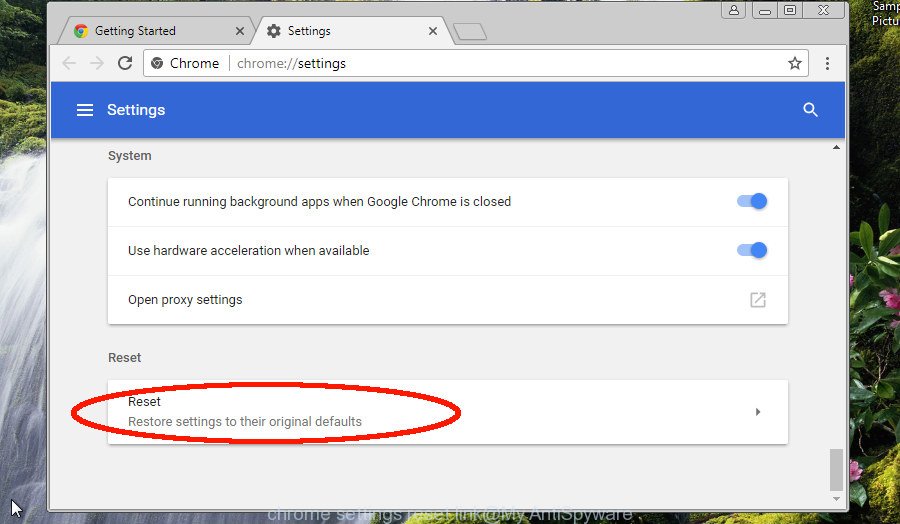
The Chrome will open the confirmation prompt as on the image below.

You need to confirm your action, press the “Reset” button. The web browser will start the procedure of cleaning. After it’s complete, the browser’s settings including startpage, default search engine and newtab back to the values which have been when the Google Chrome was first installed on your computer.
Automatic Removal of Myhugewords.com popups
Using a malicious software removal tool to detect and remove adware hiding on your PC system is probably the easiest solution to remove the Myhugewords.com advertisements. We recommends the Zemana program for MS Windows computers. Hitman Pro and MalwareBytes Anti Malware are other antimalware utilities for Microsoft Windows that offers a free malware removal.
Remove Myhugewords.com ads with Zemana
Does Zemana AntiMalware (ZAM) remove adware software that causes Myhugewords.com pop up advertisements? The adware software is often downloaded with malware which can cause you to install an application such as PUPs you don’t want. Therefore, suggest using the Zemana Free. It’s a utility designed to scan and delete adware and other malware from your computer for free.
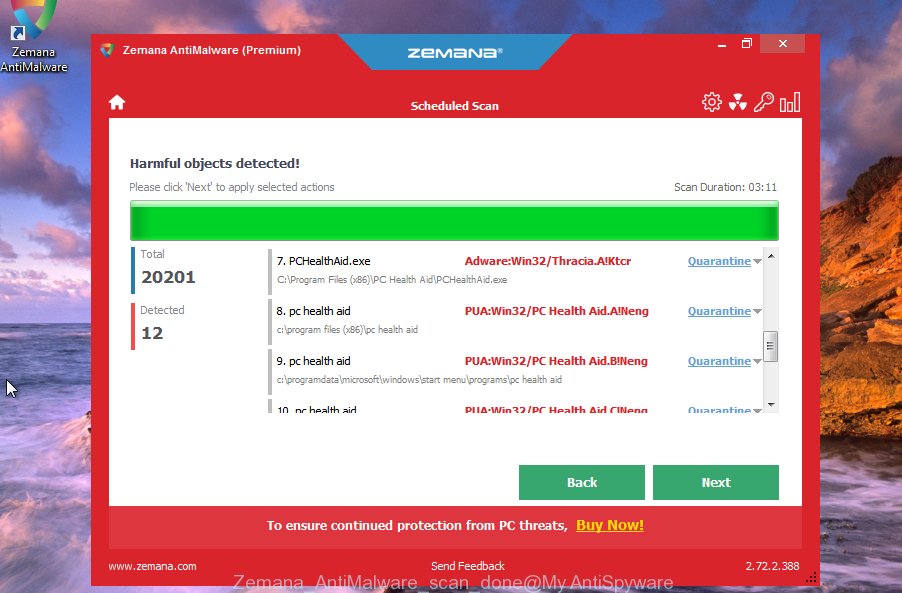
- Download Zemana Anti-Malware (ZAM) from the following link.
Zemana AntiMalware
164814 downloads
Author: Zemana Ltd
Category: Security tools
Update: July 16, 2019
- Once downloading is done, close all programs and windows on your personal computer. Open a file location. Double-click on the icon that’s named Zemana.AntiMalware.Setup.
- Further, click Next button and follow the prompts.
- Once installation is finished, click the “Scan” button to perform a system scan for the adware that causes Myhugewords.com pop-ups in your web-browser. This task can take quite a while, so please be patient. During the scan Zemana Anti-Malware (ZAM) will detect threats present on your PC system.
- When Zemana Free is finished scanning your PC, you will be shown the list of all detected threats on your computer. Make sure to check mark the items that are unsafe and then press “Next”. Once the clean up is finished, you may be prompted to restart your computer.
Use Hitman Pro to remove Myhugewords.com pop up ads
The HitmanPro tool is free (30 day trial) and easy to use. It may check and get rid of malicious software, PUPs and adware in Internet Explorer, Edge, Chrome and Firefox internet browsers and thereby remove all unwanted Myhugewords.com advertisements. HitmanPro is powerful enough to find and remove malicious registry entries and files that are hidden on the computer.
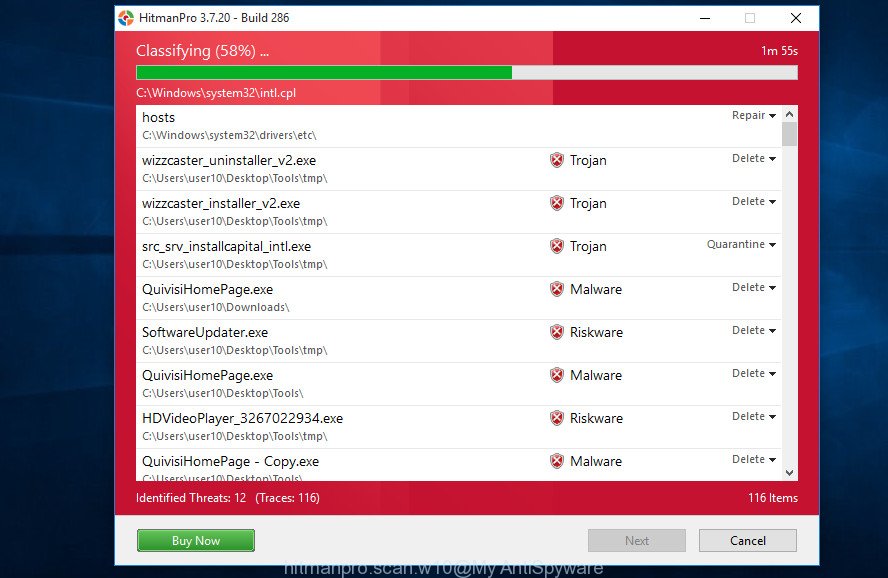
- HitmanPro can be downloaded from the following link. Save it on your MS Windows desktop.
- After downloading is finished, double click the HitmanPro icon. Once this tool is started, press “Next” button for checking your PC system for the adware software related to the Myhugewords.com pop-ups. This procedure can take some time, so please be patient. When a threat is found, the count of the security threats will change accordingly. Wait until the the checking is done.
- As the scanning ends, you’ll be shown the list of all found items on your computer. Once you have selected what you wish to remove from your device press “Next” button. Now click the “Activate free license” button to begin the free 30 days trial to remove all malware found.
How to remove Myhugewords.com with MalwareBytes
Manual Myhugewords.com pop up advertisements removal requires some computer skills. Some files and registry entries that created by the adware can be not completely removed. We advise that use the MalwareBytes that are completely clean your device of adware. Moreover, the free application will help you to remove malicious software, PUPs, browser hijackers and toolbars that your PC can be infected too.
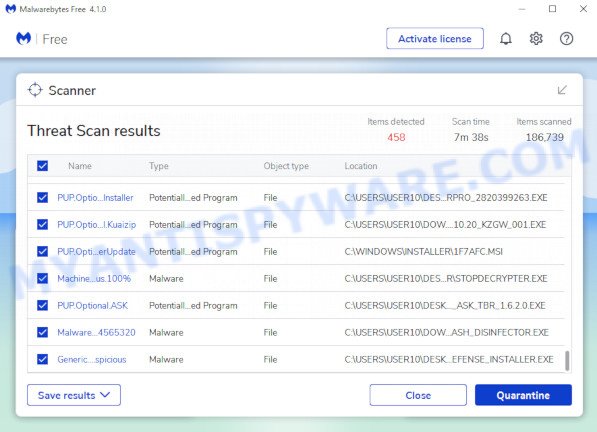
- Download MalwareBytes Free on your device by clicking on the link below.
Malwarebytes Anti-malware
327071 downloads
Author: Malwarebytes
Category: Security tools
Update: April 15, 2020
- When downloading is done, close all software and windows on your computer. Open a file location. Double-click on the icon that’s named MBsetup.
- Choose “Personal computer” option and press Install button. Follow the prompts.
- Once installation is finished, click the “Scan” button to search for adware that causes pop-ups. This process may take quite a while, so please be patient. During the scan MalwareBytes Anti-Malware will search for threats exist on your PC.
- When finished, a list of all items found is prepared. Review the scan results and then click “Quarantine”. Once finished, you can be prompted to reboot your computer.
The following video offers a tutorial on how to get rid of hijackers, adware software and other malware with MalwareBytes Anti Malware.
Stop Myhugewords.com ads
It is also critical to protect your web-browsers from malicious web pages and ads by using an ad-blocking program like AdGuard. Security experts says that it’ll greatly reduce the risk of malware, and potentially save lots of money. Additionally, the AdGuard may also protect your privacy by blocking almost all trackers.
AdGuard can be downloaded from the following link. Save it on your Microsoft Windows desktop or in any other place.
26843 downloads
Version: 6.4
Author: © Adguard
Category: Security tools
Update: November 15, 2018
After downloading is complete, start the downloaded file. You will see the “Setup Wizard” screen as shown in the figure below.
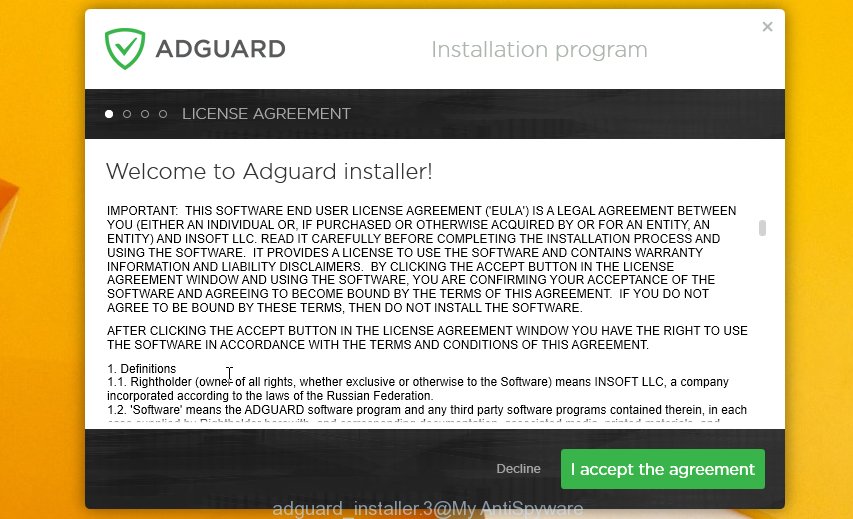
Follow the prompts. After the install is finished, you will see a window as displayed on the screen below.

You can press “Skip” to close the setup program and use the default settings, or click “Get Started” button to see an quick tutorial which will help you get to know AdGuard better.
In most cases, the default settings are enough and you do not need to change anything. Each time, when you start your computer, AdGuard will start automatically and stop unwanted ads, block Myhugewords.com, as well as other malicious or misleading webpages. For an overview of all the features of the program, or to change its settings you can simply double-click on the AdGuard icon, that can be found on your desktop.
To sum up
Once you have removed the adware using this steps, Mozilla Firefox, Google Chrome, IE and Microsoft Edge will no longer redirect you to various unwanted websites similar to Myhugewords.com. Unfortunately, if the guidance does not help you, then you have caught a new adware software, and then the best way – ask for help here.


















